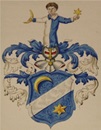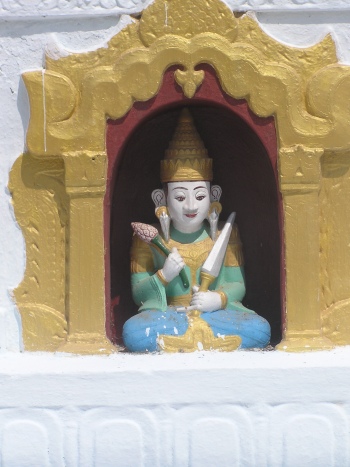Nats are a significant part of Burmese (Myanmar) spiritual and cultural practices. They are spirits or deities in Buddhist folklore and animist traditions, and the worship of nats pre-dates the country's Buddhist history. Nat deva refers to a spirit or deity in the Burmese tradition of nat worship.
Key Points about Nat Deva:
1. Role and Significance:
- Nat deva is a term used for the spirits or deities that are worshiped by the people in Myanmar. They are believed to have specific powers or attributes related to nature, health, prosperity, and protection.
- They are often associated with natural forces, such as mountains, trees, and rivers, or certain elements of life, like childbirth, wealth, and travel.
2. Origin of Nats:
- The worship of nats is rooted in pre-Buddhist animism, which was practiced by the indigenous people of Myanmar. Over time, this belief system was integrated with Buddhism, and nats were incorporated into Buddhist cosmology.
- Many nats are considered to be spirits of deceased humans, especially individuals who have had tragic or violent deaths. These spirits are believed to remain on Earth as powerful beings who can influence the lives of the living.
3. The 37 Great Nats:
- The most famous and widely recognized nats are the 37 Great Nats (sometimes called the Thirty-Seven Nats). These are the most revered and powerful spirits in the nat pantheon, and they are worshiped in shrines or temples throughout Myanmar.
- Each of these 37 spirits has a distinct story and attributes, and worshipers may choose a particular nat to invoke for specific blessings.
Some of the notable 37 Great Nats include:
- Thagyamin: The king of all nats and a protector spirit.
- Maha Myat Muni: A powerful spirit associated with wisdom and guidance.
- Shwe San Daw: A nat worshiped for protection and well-being.
4. Worship of Nat Deva:
- The worship of nat deva often takes place at nat shrines or pagan temples throughout Myanmar, particularly in rural areas.
- Offerings such as flowers, food, incense, candles, and spirits (alcoholic beverages like whiskey or rice wine) are made to the nats as a way to appease them and gain favor.
- People visit these shrines or participate in festivals to pray for protection, healing, good fortune, or success in life.
5. Nat Festivals:
- The Nat Pwe (Nat festival) is a major event dedicated to honoring the nats. It involves singing, dancing, drumming, and rituals performed by nat kadaw (mediums or spirit mediums) who communicate with the nats.
- The festival can be a lively and colorful event where mediums enter a trance to become possessed by the spirits they serve, acting as their earthly representatives.
6. Buddhist and Nat Beliefs:
- In Myanmar, Buddhism and nat worship often coexist harmoniously. While Buddhists may worship the Buddha and follow the teachings of Theravada Buddhism, they also participate in nat worship as part of their cultural practices.
- Some nats are even honored in Buddhist temples, reflecting the integration of both traditions over time.
Conclusion:
The worship of Nat Deva is an important part of Myanmar's spiritual and cultural life, blending Buddhist beliefs with ancient animistic traditions. These deities are seen as powerful spirits that can influence people's lives, and the devotion to them remains an important part of the daily life of many Burmese. Whether through offering prayers, taking part in festivals, or visiting nat shrines, the reverence for the nats continues to be a deeply ingrained part of Burmese tradition.





